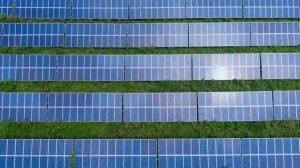Investing in solar panels is a significant decision for homeowners aiming to reduce their energy bills, increase their property value, and contribute to a greener planet. With advancements in technology and decreasing costs, solar energy has become more accessible and efficient than ever before.
However, there are several important aspects homeowners must understand before making the switch to solar power. This guide will provide you with essential information about solar panels, including how they work, the benefits they offer, and what you should consider during the installation process. Armed with this knowledge, you can make an informed decision that suits your energy needs and financial goals.
How Solar Panels Work
Solar panels, also known as photovoltaic (PV) panels, convert sunlight directly into electricity. They are composed of many solar cells made from silicon, a semiconductor material. When sunlight strikes these cells, it knocks electrons loose from their atoms, creating an electric current. This direct current (DC) is then converted into alternating current (AC) by an inverter, which is suitable for powering homes.
The efficiency of a solar panel is determined by its ability to convert sunlight into usable energy, a factor known as its conversion efficiency. Modern solar panels have seen significant improvements in this area, meaning they can generate more power from the same amount of sunlight. Understanding how solar panels work helps homeowners appreciate the technology’s value and set realistic expectations for their energy production.
Factors to Consider Before Installation
Before committing to solar panel installation, homeowners need to evaluate the condition of their roofs. A roof that requires repairs or replacement should be addressed before installing solar panels to avoid future complications. Additionally, the roof’s orientation and pitch can impact the efficiency of the solar panels, as southern-facing roofs with a moderate pitch are usually ideal.
Metal roofs are the most suitable for solar panel installation, as they provide a smooth and even surface. As the folks from Metal Roofing Wisconsin note, a metal roofing structure can last up to 70 years, making it one of the best materials to choose from when considering solar energy. Besides the roof, homeowners should also assess their property’s shade and ensure that there is adequate space for solar panels without obstruction from nearby trees or buildings.
Benefits of Installing Solar Panels
One of the primary advantages of installing solar panels is the potential for significant savings on energy bills. Once the initial investment is recouped, the energy produced by the panels is essentially free. Depending on the size of the system and local electricity rates, homeowners can often see a return on their investment within five to ten years.
Additionally, solar panels can increase the value of your property. Homes equipped with solar energy systems are often seen as more modern and eco-friendly, which can be appealing to potential buyers. This added value can enhance the resale value of your home and make it more attractive in a competitive market.
Costs and Financing Options
The initial cost of purchasing and installing solar panels can be substantial. Fortunately, there are various financing options available to make solar energy more accessible. Homeowners can choose to buy the system outright, take out a solar loan, or lease the solar panels. Each option has its pros and cons, and understanding these can help you make the most cost-effective decision.
Many governments and local authorities offer incentives and tax credits to encourage the adoption of solar energy. These incentives can significantly reduce the upfront cost of installation, making solar panels a more attractive investment. Researching and taking full advantage of these financial benefits can help you achieve a quicker return on investment.
Maintenance and Longevity
Once installed, solar panels require very little maintenance to operate efficiently. Cleaning the panels occasionally to remove dust and debris, and ensuring that there are no obstructions casting shadows on them, are often sufficient to keep them in good working order. Most solar panels come with warranties that can range from 20 to 25 years, reflecting their durability and reliability.
It’s also important to keep an eye on your system’s performance through monitoring apps provided by the solar installation company. Regular monitoring helps you detect and address any issues promptly, ensuring optimal performance. With minimal upkeep, solar panels can provide clean, renewable energy for decades, making them a durable and reliable solution for reducing your carbon footprint and energy bills over the long term.

In conclusion, investing in solar panels is a wise decision for homeowners looking to reduce their energy costs, increase their property value, and contribute to a sustainable future. Understanding how solar panels work, assessing the suitability of your property, and considering the financial implications are crucial steps in the decision-making process.
The benefits of solar panels, such as long-term savings on energy bills and the potential increase in home value, make them an attractive option for many. With advancements in technology and various financing options available, solar energy is now more accessible than ever. By carefully evaluating all factors and taking advantage of available incentives, homeowners can make a well-informed choice that supports their energy needs and environmental goals.

